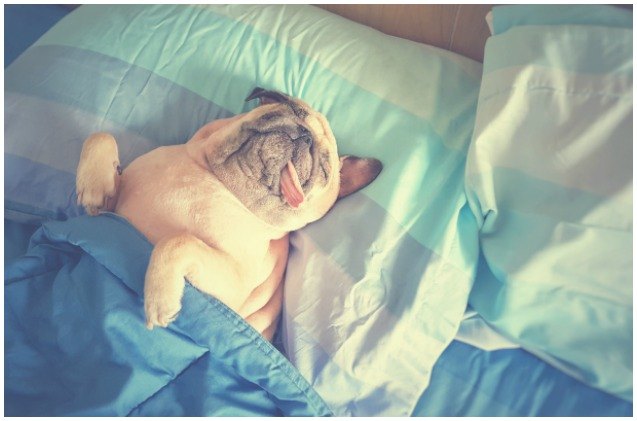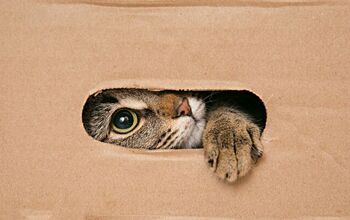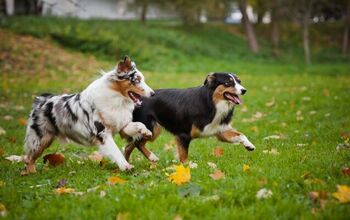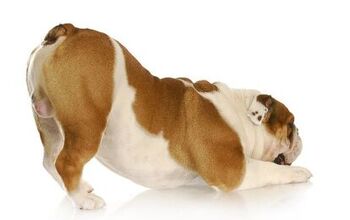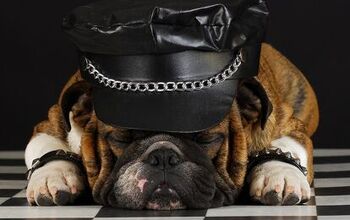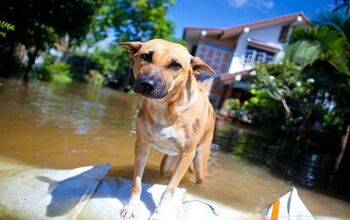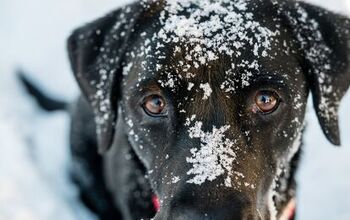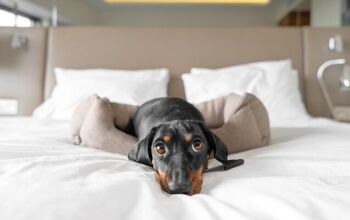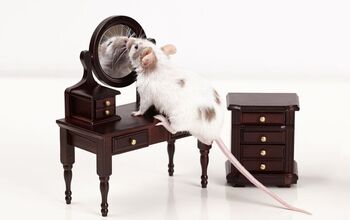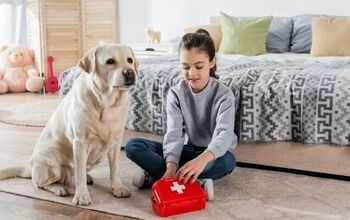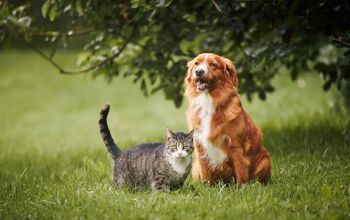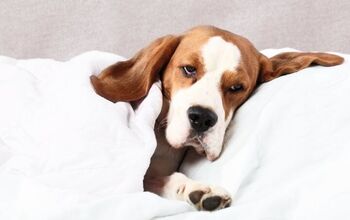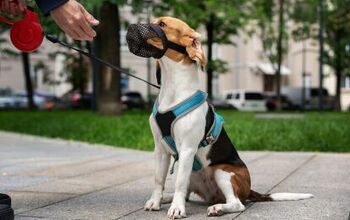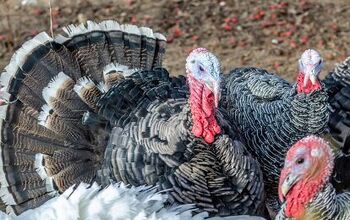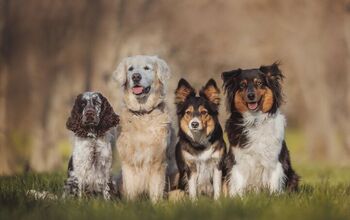Does Your Dog Have A Sleep Problem?

I love my dogs and they’ve always been part of our bedtime routine–they come upstairs to their beds while we humans get ready for ours and we all tuck ourselves in for a nice night’s sleep.
Except my golden would scratch and scratch in the middle of the night. I’m a light sleeper and it woke me up. Now, we have a puppy who is just.like.her, only she’s a hound-mix so she talks in her sleep as well. Yes, talks in her sleep.
You see veterinarians will tell you that dogs not only have sleep disorders too, but the signs and symptoms that they have one are uncannily similar to those symptoms in humans.
Related: Researchers Believe Dogs Help Women Sleep Better
“But my dog lays around for pretty much most of the day,” you say. Sure, most dogs sleep between 12 and 14 hours a day, but just like humans, if that sleep isn’t restorative–if it doesn’t allow their brains to do what they need to do while they’re asleep–it can be very detrimental.
And, it might be a pain in your kiester too, because if your dog is staying up all night, odds are you just might be too. In dogs who are not getting restful, restorative sleep, there may be a buildup of hormones that could cause problems for Fido during the day. And, just like in humans, when the doctor tells you to get rest, it’s because rest heals and keeps your immune system strong. Dogs who are not getting enough shut-eye may have immune systems that aren’t as able to fight off germs and infection.
So how do you know if your dog has a sleep issue? Would you even know what a sleep disorder looked like? Check out the following and see if Fifi fits any of the bills:
Yes, yes, you might think it’s adorable when Lola saws wood like a lumberjack, but be real–is it that adorable at 2:37 in the morning? We know, we know. Dogs can have sleep apnea like humans can, and just like in humans, sleep apnea can be a big deal. If dogs are not getting enough oxygen in their brains, they’re not being the healthiest they can be and that loud snoring or gasping/snorting for breath in between their snores isn’t cute; it needs to be the trigger for your vet to look into why your dog is snoring or has apnea and if there’s anything you can do about it. It’s particularly prevalent in flat-faced dogs like pugs, bulldogs and Frenchies, so be sure they’re getting enough oxygen at night!
A post shared by Anna (@annasadventurouslife) on Jan 11, 2019 at 9:09pm PST
Yes, your dog can get insomnia too. We know it sounds weird because honestly, dogs are known for just finding themselves a nice cozy spot and taking a snoozie-poo any time they want. And that’s all the more reason that when they can’t/don’t? It’s an issue. It’s not often you’ll find dogs with insomnia but it can happen and it sadly tends to happen more often in older dogs. As my golden hit her last year with us, I could tell she wanted to just lay down and rest, and still–she didn’t seem to fall asleep super easily sometimes and even seemed like the inability to do so made her anxious. Veterinarians will tell you that like humans, anxiety or medical issues or even lack of exercise may keep your doggy from counting sheep, so if that is happening, you’ll want your vet to check him over and make sure there’s no underlying medical condition hiding.
“Awwww…look! She’s chasing deer!” is what you might find yourself saying if your puppy seems like they’re acting out their dream as they sleep. Sure, it’s sweet to think they’re frolicking through fields of flowers with you by their side in their dreams, but that movement (especially if extreme or violent) could be a sign of a sleep disorder called REM Behavior Disorder. It’s not usually a big deal every now and then, but if you find your pup is prancing through the night in her dreams, and especially if she actually gets up and moves into things that might hurt her, you will want to have your veterinarian check her out and see what’s going on during her REM sleep cycles.
Posted by on Sunday, January 13, 2019
This is particularly common in senior dogs who have dementia. Dementia itself is not a sleep disorder, but the pacing and crying at night–that feeling that they just can’t settle themselves down even though you KNOW they have to be tired–that might be a sign of dementia and will certainly affect their sleep. Yours too–because you’ll be so worried about your baby. Have your vet look them over carefully if they just can’t settle at night anymore, and it doesn’t seem there’s any good reason.
It’s probably not what you think in humans OR dogs. It can look like a lot of different things in people and dogs, but if you’ve ever seen your dog just fall over and pass out after they’ve just zoomied all over the place, you might have a pup with narcolepsy. It’s a genetic condition that is fairly common in Doberman pinschers, Labrador retrievers and poodles and if your dog is narcoleptic, they’ll just collapse and fall asleep. Most often, it’s usually after something super stimulating like a playdate or greeting neighbors at the door. A loud noise or even petting will most likely (and surprisingly) wake them up and your veterinarian will most likely recommend some lifestyle changes that will keep your pet safe in those narcoleptic episodes.

More by Lori Ennis



